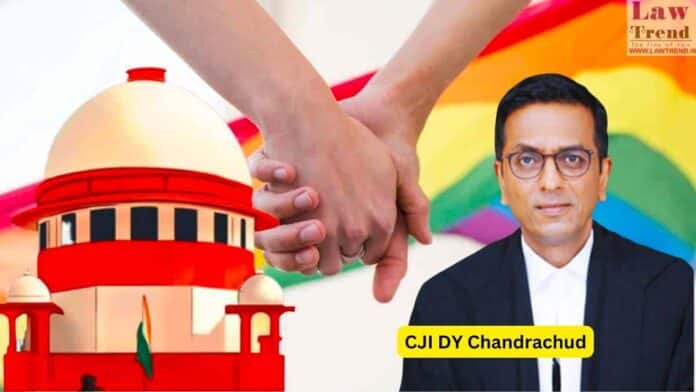Chief Justice of India (CJI) D Y Chandrachud on Tuesday said the committee that would be formed by the Centre for defining the scope of the entitlements of queer couples would consider enabling them to be treated as part of the “same family” for the purposes of a ration card as well as availing the facility of a joint bank account with the option to name the other spouse as a nominee.
The CJI, in a judgment authored by him on a batch of 21 petitions seeking legal sanction for same-sex marriages, further said the committee would look into considering the parties as a “family” in case one of the spouses is “terminally ill” or has died or is in jail.
Justice Chandrachud was part of a five-judge Constitution bench that unanimously refused to accord legal recognition to same-sex marriages under the Special Marriage Act.
The CJI’s directions came after he took on record the assurance of the solicitor general that the Centre would constitute a committee chaired by the cabinet secretary for the purpose of defining and elucidating the scope of the entitlements of queer couples who are in unions.
Justice Chandrachud said the committee shall include experts with domain knowledge and experience in dealing with the social, psychological and emotional needs of the members of the queer community.
“The committee shall, in terms of the exposition in this judgment, consider the following: enabling partners in a queer relationship (i) to be treated as part of the same family for the purposes of a ration card and (ii) to have the facility of a joint bank account with the option to name the partner as a nominee in case of death,” the CJI said.
He added that in terms of earlier decisions, medical practitioners have a duty to consult the family or next of kin or next friend in the event terminally-ill patients have not executed an advance directive. The CJI said parties in a union may be considered as “family” for this purpose as well as for jail visitation rights and the right to access the body of the deceased partner and arrange the last rites.
Justice Chandrachud also asked the committee to consider the legal consequences like succession rights, maintenance, financial benefits such as those under the Income Tax Act, rights flowing from employment, such as gratuity, family pension and insurance.
Also Read
The CJI’s judgment stated that before finalising its decisions, the committee would conduct wide stakeholder consultation amongst the members of the queer community, including those belonging to marginalised groups, as well as with the states and Union territories.
The report of the committee shall be implemented at the administrative level by the Centre, states and Union territories, it stated.
The Supreme Court on Tuesday refused to accord legal recognition to same-sex marriages, saying there is “no unqualified right” to marriage with the exception of those that are recognised by law and an entitlement to legal recognition of the right to union, akin to marriage or civil union, or conferring legal status to the relationship can only be done through “enacted law”.
The five-judge bench delivered four separate verdicts on the issue.




